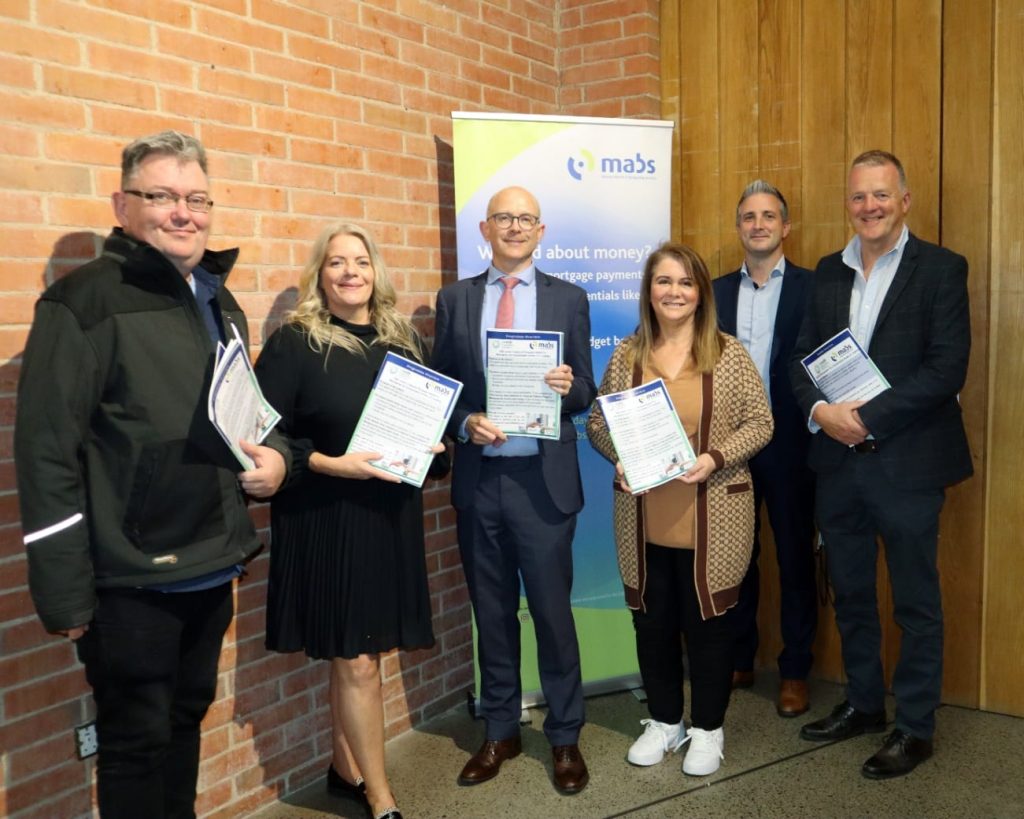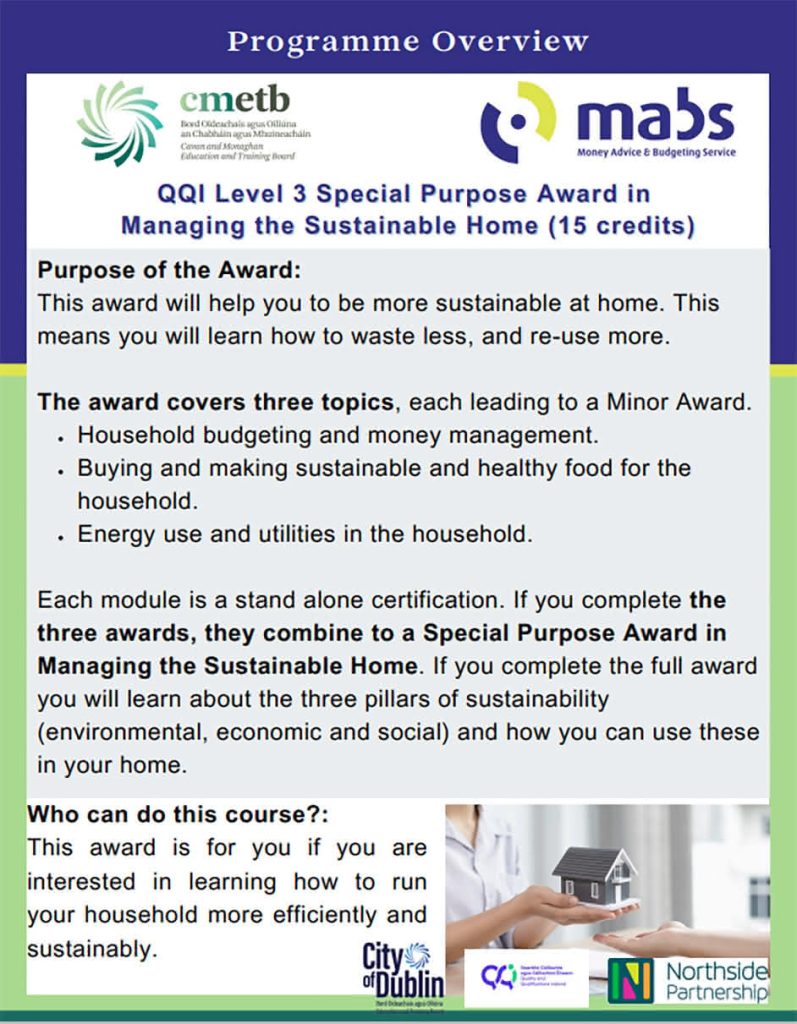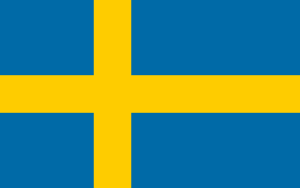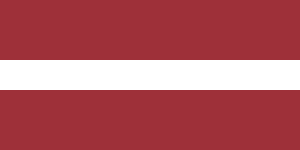Ireland : Official Launch of Managing the Sustainable Home – A New Course Offering by Education Training Board and MABS
Money Advice and Budgeting Service (MABS) in partnership with The Education and Training Board has launched a new course titled “Managing the Sustainable Home.”
The QQI Level 3 Special Purpose Award in Managing the Sustainable Home aims to enable learners to apply sustainable practices to everyday household management. The award covers three specific areas:
- Budgeting and Financial Management
- Sustainable and Healthy Food Provision
- Sustainable Use of Energy and Utilities
Learners who complete the course will gain a solid grounding in the three pillars of sustainability (environmental, economic, and social) and how these relate to effective, efficient, and sustainable household management.
The three-component structure of the Special Purpose, which recognizes three distinct areas of sustainable practice in the home, ensures that it covers the essentials of household sustainability, while also providing learners with a firm grounding in the underpinning principles (pillars) of sustainability. The programme is very much hands-on in terms of approach. Each of the awards focuses on discussion of key themes and practical application of learning in the home during the period of participation on the programme. Assessment is similarly focused on providing the learners with opportunities to demonstrate how their learning has informed their approach to sustainable practice in the home. Learning journals recounting approaches to sustainable practice in the home and, in the case of the Food Management component, a cooking demonstration using leftover food, enable learners to showcase what they have learned and how it is informing their behaviour.
The programme is particularly timely and relevant, given that sustainability is a crucial issue in today’s society. Sustainable practices are essential for both businesses and individuals alike. In an era of sustainable targets and reporting requirements, empowering learners in sustainable energy behaviour is a key factor in the transition to sustainability at a macro and personal level, all the while the learner can see the benefits in their household budgets.
The Economic and Social Research Institute of Ireland reported in June 2022 an estimate of Irish households in energy poverty at 29%. This is the highest rate since 23% in 1994/5. The ESRI also forecasted that this rate of energy poverty could reach 43% in a scenario of another 25% increase in energy inflation. Research to date indicates that income alone does not cause energy poverty, but that ability to use energy efficiently also play a major role in energy poverty.
This programme is also welcomed as recent research report commissioned by the Department of Finance (Ireland) and published in April 2024 indicates that about 43% of adults have difficulties with financial understanding. OECD/INFE 2020 International Survey of Adult Financial Literacy highlighted the need to encourage positive financial behaviours and attitudes to improve financial resilience and pursue long-term financial wellbeing.
According to the Council of Europe, there are 3 pillars that policies should fall under one or several to help a country prevent over-indebtedness of citizens
- Prevention – debt prevent education through programmes like Managing the Sustainable Home
- Curative – services like MABS helping to budget and debt solutions
- Rehabilitation – returning a debtor to good financial health
Debt solutions alone are not alone the answer to over-indebtedness. Previous research by Technical University of Dublin, show that debtors who have secured a debt solution through one of the insolvency Solutions in Ireland called a Debt Relief Notice felt that the insolvency solution is effective in addressing the debt issue but that this is only a short-term fix for the problem. Financial education is imperative for the long-term success of any debt solution.
Financial Wellbeing is about having the confidence to manage your money, to plan your future and to be as prepared as possible for the unexpected.
There are four components of financial wellbeing:
- Objective financial status : income and assets and debts
- Subjective financial status : how we feel about our financial health, impacting by our expectations and our current objective financial status
- Financial attitudes and knowledge: can include understanding of financial products, budgeting plans and being risk adverse (relatively)
- Financial behaviours : Good practices such as living within our means, paying bills on time and planning for retirement
The importance of a person’s ability to control their finances is a critical determinant of their subjective financial wellbeing, regardless of the amount of money they have. Control of our financial situation can be achieved through budgeting and planning for our financial future.
This programme aims to give learners budgeting tools to develop their skills within their own capacity.
The diversity of problem debt can make it difficult to tackle in a policy framework. In addition, the social and cultural shame and stigma associated with unmanageable debt levels makes it more difficult to identify those in difficulty at an early stage. Increasing education on money management not only positively impacts financial capability and helps build resilience, but education is key to opening conversations and breaking down the social shame of debt and money management, leading to improved financial and emotional wellbeing.

MABS Representatives at the launch of Managing the Sustainable Home




